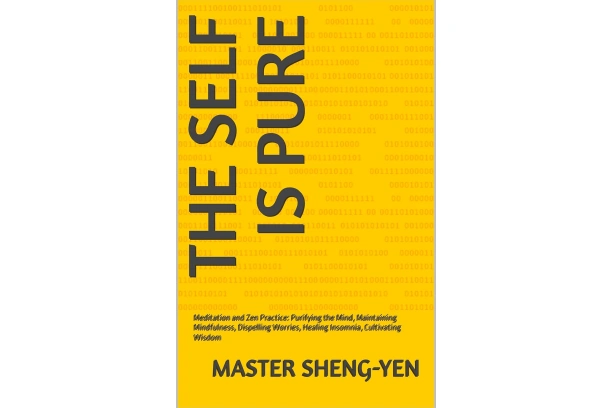24 Common Physical and Mental Reactions During Meditation
Author:
Serenity
, Published on
Nov 6, 2024 10 am
When meditating, have you noticed your body suddenly feeling warm, or experienced emotions that are difficult to describe? These subtle changes are actually your body and mind sending you messages. Meditation is like an inner journey—each session is a new experience, sometimes peaceful, sometimes challenging. Below are 24 common physical and mental reactions during meditation:
1.Body Warmth
- Cause: During meditation, the sympathetic nervous system relaxes, improving blood circulation, and the body’s temperature regulation mechanism may cause warmth.
- Suggestion: Wear breathable clothing, adjust the room temperature, and continue meditating while enjoying the warmth. If it becomes too hot, take a break and adjust the temperature.
2.Stiffness or Muscle Pain
- Cause: Sitting still for extended periods may cause localized muscle tension or bring attention to discomfort that is usually ignored.
- Suggestion: Do simple stretches before and after meditation; maintain a natural, straight posture; use support cushions if needed. Alternatively, try a body scan practice to help relax tense areas.
3.Racing Thoughts
- Cause: In the early stages of meditation, the brain is accustomed to constant activity, and concentration hasn’t fully developed.
- Suggestion: Allow thoughts to come and go naturally, focusing on your breath or a simple meditation object. Whenever your attention drifts, gently bring it back without self-criticism.
4.Emotional Fluctuations
- Cause: Meditation may bring up hidden emotions like anxiety, anger, or joy.
- Suggestion: Accept emotions as they arise and observe them calmly without judgment. Use deep breathing to help calm yourself. If emotions become too intense, pause and resume later.

5.Drowsiness
- Cause: Meditation relaxes the body and nervous system, which may lead to feelings of drowsiness, especially when tired.
- Suggestion: Meditate at a time when you are mentally alert, such as in the morning. Maintain an upright sitting position, avoid leaning against the wall or lying down. If feeling sleepy, stand up or do light movements.
6.Shallow or Rapid Breathing
- Cause: Focusing too much on the breath or feeling tense can cause irregular breathing.
- Suggestion: Relax your face and shoulders, and observe your breath naturally without trying to control it. If breathing becomes rapid, take a deep breath and exhale slowly, relaxing your body.
7.Body Movements or Shaking
- Cause: This could be a release of tense energy or a natural self-adjustment reaction, triggered by deep relaxation.
- Suggestion: Accept the body’s natural response without trying to suppress it. If it occurs frequently, do some stretches before meditation to help release excess energy.
8.Dizziness or Lightheadedness
- Cause: Unfamiliar deep breathing or incorrect posture can temporarily affect blood circulation.
- Suggestion: Ensure a relaxed and natural sitting posture with a straight back. If feeling dizzy, gently open your eyes, move your neck lightly, and adjust your breath to a comfortable pace before continuing.

9.Difficulty Focusing
- Cause: The brain is accustomed to multitasking, or external distractions may affect concentration.
- Suggestion: Meditate in a quiet, dimly lit space. Each time your attention drifts, gently bring it back to your meditation object. Start with simple objects like your breath to train your concentration gradually.
10.Feeling of Inner Peace
- Cause: Focus and relaxation during meditation help the body and mind enter a peaceful state.
- Suggestion: Record this peaceful feeling and try to carry it into daily life through brief moments of focus, such as closing your eyes to meditate or practicing deep breathing.
11.Pleasure or Happiness
- Cause: Meditation triggers the release of positive chemicals like endorphins, enhancing positive emotional experiences.
- Suggestion: Enjoy the feeling without clinging to it. Keep an open mind each time you meditate and embrace the variety of experiences.
12.Tinnitus or Sensitivity to Sound
- Cause: Increased sensory awareness during meditation may heighten sensitivity to sound or cause ringing in the ears.
- Suggestion: If sound sensitivity is too high, choose a quiet environment or play soft music. If tinnitus persists, take a short break, adjust your posture, and resume meditation later.

13.Visual Brightness or Colors
- Cause: In a relaxed state, the visual nerves may generate spontaneous physiological responses such as flashes of light or colors.
- Suggestion: Gently close your eyes and observe these phenomena without interference. Focus on your meditation object, like your breath, and allow the lights or colors to fade naturally.
14.Lightness or Floating Sensation
- Cause: Deep relaxation can reduce the perception of gravity, leading to sensations of lightness or floating.
- Suggestion: Accept this sensation and focus on the points where your body contacts the ground, chair, or floor (such as the soles of your feet or sit bones) to maintain stability in your meditation.
15.Heavy Sensation in the Body
- Cause: During deep relaxation, energy concentration in certain parts of the body may cause a sensation of heaviness.
- Suggestion: Observe and accept this heaviness without resistance. You can shift attention to other areas of the body, such as your fingers or toes, to help achieve a more balanced relaxation.
16.Increased Heart Rate
- Cause: Emotional fluctuations or an energy surge may cause a temporary increase in heart rate.
- Suggestion: Relax any tense body parts, such as your shoulders, neck, or jaw. Focus on slow, deep breaths, and let your heart rate gradually stabilize. If discomfort persists, stop meditating and rest for a moment.

17.Feeling Cold or Shivering
- Cause: Deep relaxation may slow down metabolism and blood flow, causing a sensation of coldness.
- Suggestion: Cover yourself with a blanket or wear warm clothing, maintain a warm environment, and give your body time to adjust to the relaxed state.
18.Stomach Growling or Digestive Reactions
- Cause: Relaxation activates the parasympathetic nervous system, stimulating the digestive system.
- Suggestion: Accept this natural response and continue meditating. If discomfort arises, drink warm water or gently massage your abdomen to alleviate the sensation.
19.Loss of Sense of Time
- Cause: Deep focus can blur the brain’s perception of time passing.
- Suggestion: Accept the loss of time perception as part of the meditation experience. You can set a gentle timer or simply focus on the present moment.
20.Numbness or Tingling in the Body
- Cause: Prolonged sitting can affect circulation or bring attention to body tension points.
- Suggestion: Gently move your body or adjust your posture. If necessary, stand up and move for a bit, then resume meditation. Do some simple stretching before or after meditation.

21.Emotional Turbulence or Lost Feeling
- Cause: Deep meditation may touch on deeper emotions or beliefs.
- Suggestion: Gently accept any emotional turbulence, and don’t rush to find answers. Use deep breathing to calm yourself and gradually return to a stable state.
22.Emotional Release or Crying
- Cause: Meditation may release long-held emotions like sadness, guilt, or suppressed feelings.
- Suggestion: Allow yourself to release emotions, such as crying or tears. After meditation, take some time to reflect, write down your feelings, or share them with someone you trust. If emotions are overwhelming, consider seeking professional support.
23.Inspiration or Insight
- Cause: A relaxed mindset during meditation can bring subconscious thoughts to the surface, leading to insights.
- Suggestion: Record any insights after meditation, and continue to stay focused without rushing to analyze or explain them. Treat these insights as part of your personal growth and digest them gradually.
24.Boredom or Restlessness
- Cause: The brain’s unfamiliarity with stillness and repetition may cause boredom or impatience.
- Suggestion: Start with short meditation sessions, such as 5 minutes, and gradually increase the duration. Accept that boredom or restlessness is part of the practice, and refocus on your breath or other meditation objects.
You can cultivate inner peace through meditation. We sincerely recommend you to check our ebook In this book, you may can look for the right answer.








